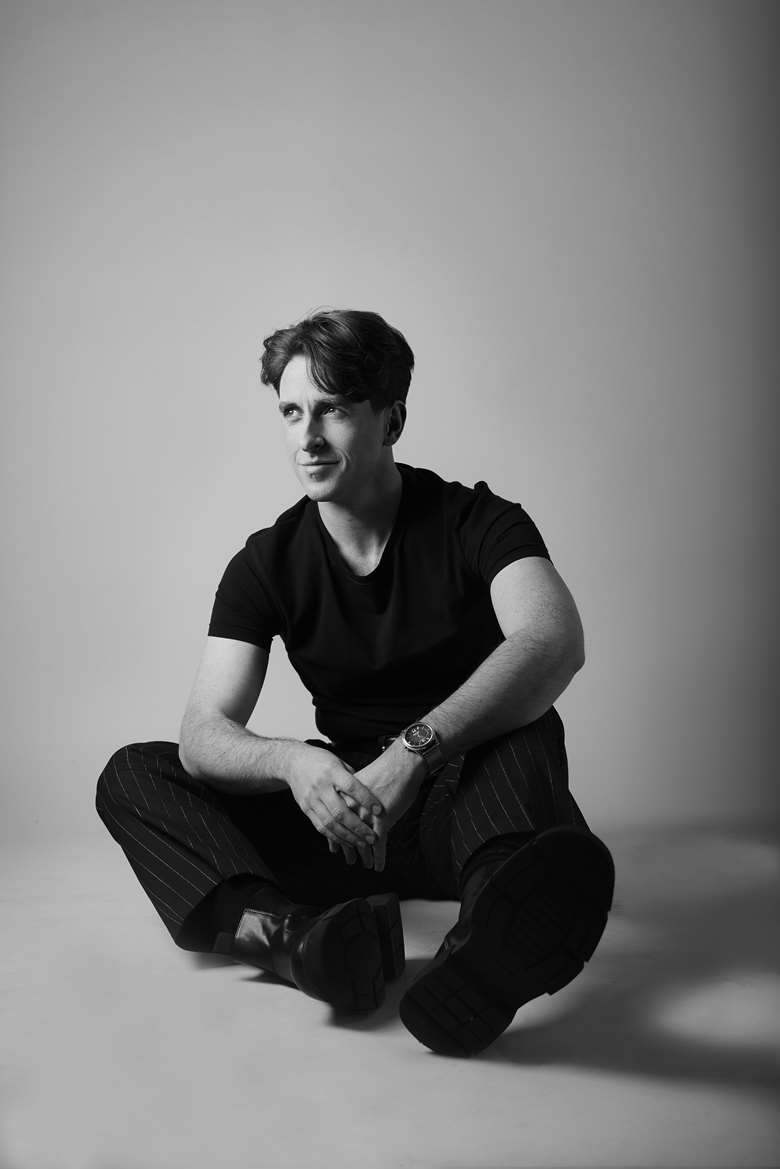'Knowing more about the artist only enhances the listener's experience' - Elgan Llŷr Thomas
Hattie Butterworth
Thursday, July 27, 2023
A new album from tenor Elgan Llŷr Thomas celebrates homosexuality through art song

Cody Jai Murray
'I don’t even think that most people are aware that Michelangelo was gay or that he was probably the first poet to write anything explicitly between two men.’ And if they don’t, tenor Elgan Llŷr Thomas hopes his new album, Unveiled on Delphian Records, might portray the Renaissance polymath genius in a different light. The more Thomas discusses the recording’s programme, the more it feels that bringing his identity to the song world is about freedom: ‘Ever since I started thinking about this album I’ve changed my entire outlook on what I would like to achieve in my life as a singer. As much as I love singing Italian opera or Britten or lighter roles in Wagner – this project is fully me.’
An exploration of queerness, celebrating gay identity through the medium of art song, Unveiled is a project you’d expect may have been done many times over. But queer identity and expression is a rarely celebrated and explored paradigm in classical recording and art song. Many opera fans (and artists) identified as gay a long time before it was possible for opera to address queerness directly.
But Thomas believes there is a distinct empathy at play when performing music and texts selected and written by gay composers: ‘All the biggest successes I’ve had in my career have come after singing Britten. I’ve done five roles and each time it spring-boarded me to something else. I think I can’t ignore that anymore because I’m clearly doing something in that which I am not able to do in Italian repertoire.’
The premiere recording of a new English translation of Benjamin Britten’s Seven Sonnets of Michelangelo begins the album. Written for and performed with Britten’s partner Peter Pears, the 1942 premiere of the work at the Wigmore Hall was sung in Italian, putting a distance between the explicitly passionate text and its homoerotic themes, 25 years before the partial decriminalisation of homosexuality with the Sexual Offences Act of 1967.
‘Britten chose to set them for Pears in Italian so that what they were saying was disguised – I kind of love that.’
It sits alongside the premiere recording of Ruth Gipps’ Four Songs of Youth, setting poems of bisexual war poet Rupert Brooke. Then there’s Tippett, another 20th-century composer known to have struggled with his homosexual identity. His Songs for Achilles for Tenor and Guitar, performed with Craig Ogden, takes one of Achilles’ lustful songs from Act 2 of Tippett’s opera King Priam.
‘Craig actually worked with Tippett personally a few times,’ Thomas tells me, ‘and my pianist Iain (Burnside) knew Peter Pears, so it was really amazing to have some context and personal stories. It felt like it brought me closer to them, because I feel so far away in terms of culture.’
Following the Tippett is perhaps the bravest statement of them all – a cycle of eight songs, Swan, composed by Thomas himself with words by Andrew McMillan. ‘I did a composition elective in my undergrad. But that’s basically it.’ Thomas is self-effacing when it comes to his composition talent. ‘I said to Ian, “I like doing this, but you need to tell me if you think that they’re no good!” ’
After much back and forth between Thomas and Burnside, Swan secured its place on the album. ‘Obviously they’re not Britten, but they are their own thing. Not only did I want my literal voice on the album but also wanted to have my own music on there because it reinforces “this is who I am” even more – they’re also the thing I’m most nervous about.’
A morphing of personal life and musical career isn’t always encouraged. But for Thomas, this project is serving the audience, and the composers whose homosexual identities were complex or repressed.
‘It doesn’t just have to be me singing some Roger Quilter songs about flowers and hedgerows. It can be more dynamic and more relevant to people. Knowing more about the artist, as long as it’s within reason and taste, only enhances the listener’s experience. I am very deliberately releasing the album in Pride Month in the hope that will give me the best platform to reach people who wouldn’t normally listen to it.’
So to wider opera and the realisations that ignited this project in the first place for Thomas: ‘I was getting so frustrated with never having any repertoire that feels like it was written for me necessarily – other than Britten. But even Britten is so under the surface – it’s not loud and proud, it’s dark and twisted. Or the characters are outsiders in that way.
‘There aren’t enough new operas being written that are diverse in the first instance – of course, traditional opera can be cast with people from different nationalities, sexualities and identities but we don’t have enough written that actually has to be cast in that way because of the stories that those people are telling.’
Thomas’s distinct witness as an artist emerges: to approach art and sexuality unapologetically, championing underrepresented voices and opening opera to a new audience through pride of identity above all else








